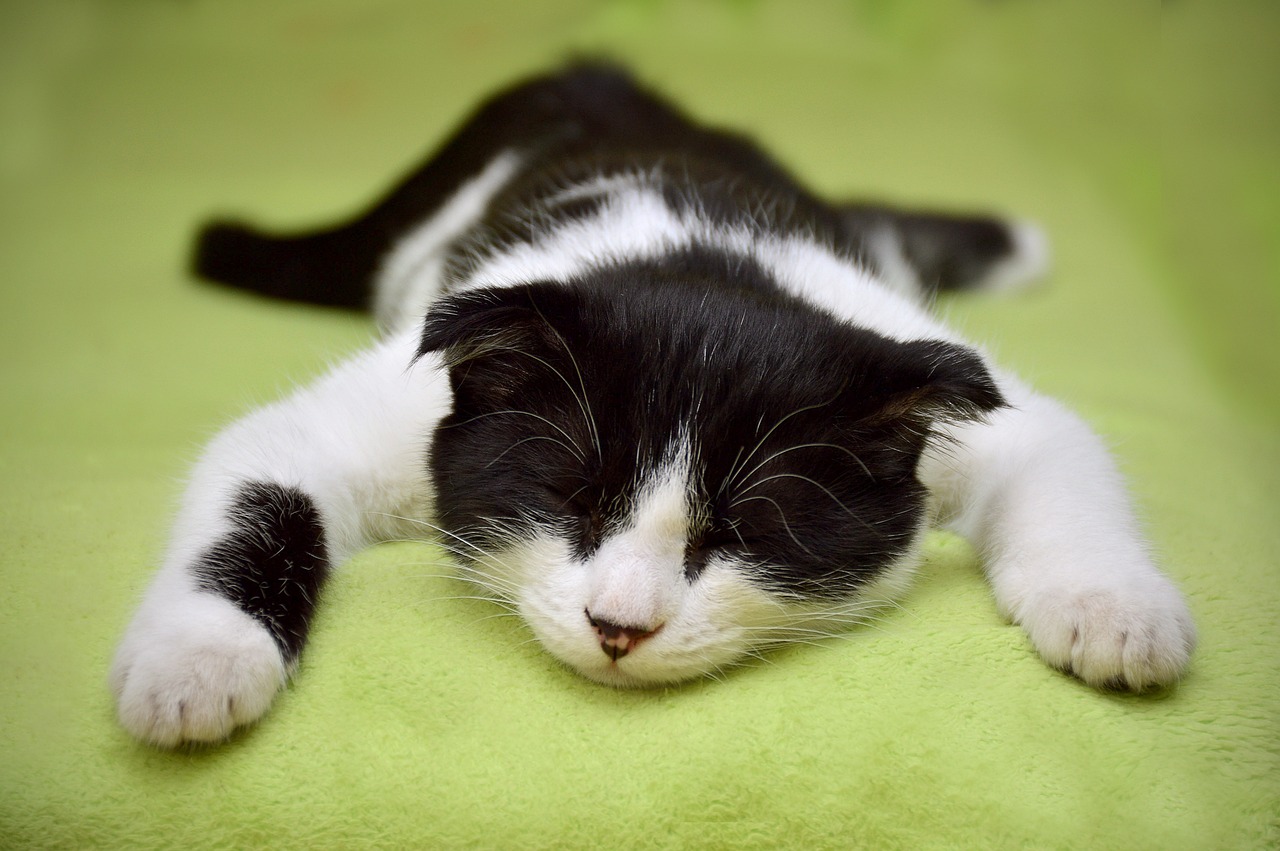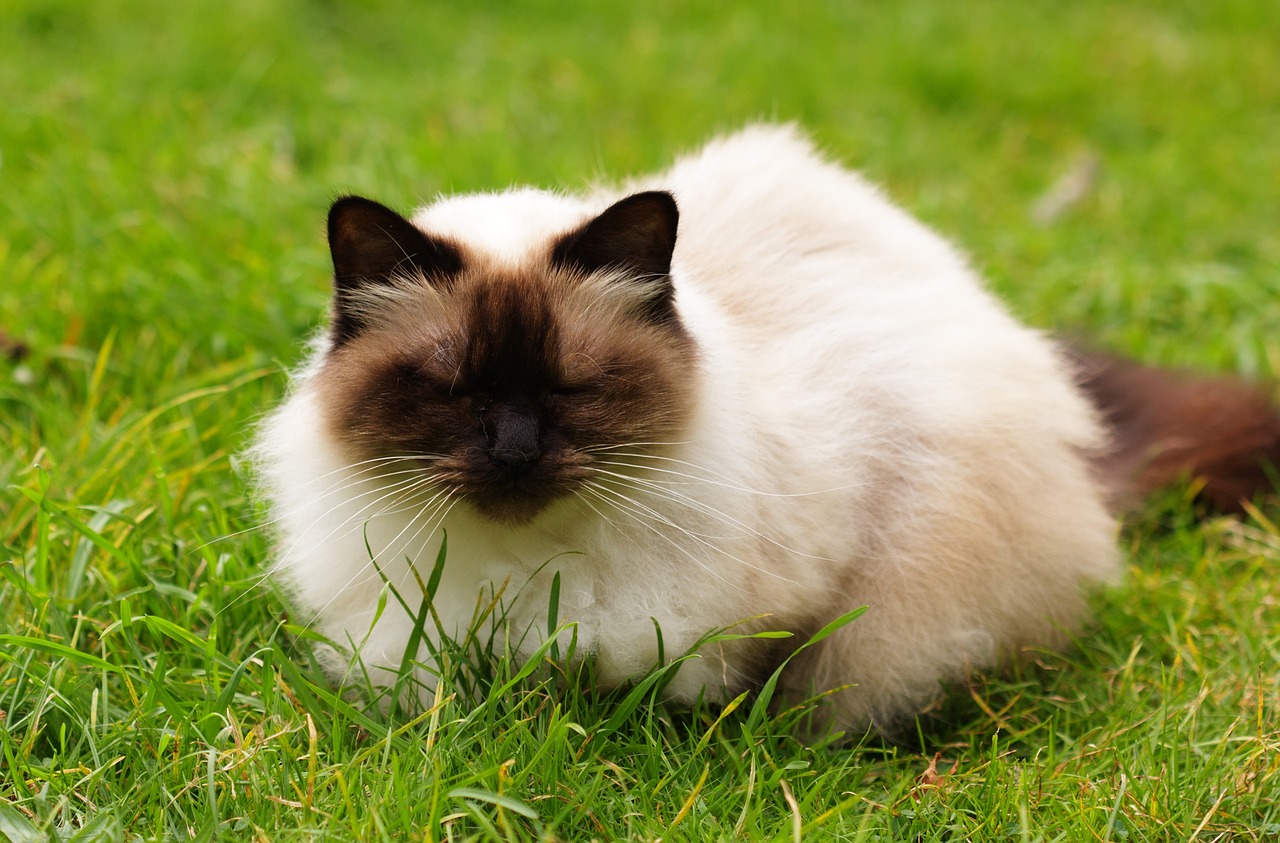Cat illnesses can be tricky to spot, as felines are experts at hiding them. As a responsible pet owner, it is important to be aware of key signs and symptoms of potential health issues. Regularly observe your cat’s daily routines, energy levels, eating and drinking habits, and how they use the litter box. Please pay attention to the colour, consistency, and frequency of their waste during elimination. While it might seem uncomfortable, sharing details about your pet’s bowel movements with your veterinarian is important. If you notice your cat experiencing diarrhoea, it’s essential to take action. Diarrhoea is not normal for cats and can be a sign of various underlying health issues, ranging from mild to severe. Understanding the potential causes and seeking prompt veterinary attention is important for your cat’s well-being.
Causes of Diarrhoea in Cats
Both little kittens and grown-up cats can get diarrhoea, and if it’s not taken care of, it can lead to serious problems. Ignoring it can be dangerous for your cat. If diarrhoea does not get better and keeps getting worse, don’t wait too long—to see a vet after 24 hours. Liquid diarrhoea is especially worrisome because it can make your cat dehydrated and undernourished quickly. Now, let’s find out what makes cats get diarrhoea.
Diarrhea in cats can be acute or chronic. Both types of cat diarrhoea have different causes. Acute diarrhoea is a term used when a cat is suddenly suffering from diarrhoea. Chronic diarrhoea means that a diarrheal condition persists for the last 2 to 3 weeks or even longer.
Causes of Acute Diarrhea In Cats
Mostly there are the following six reasons that cause acute diarrhea in cats.
- Infections: Cats can get sick from parasites, protozoans, bacteria, fungi, or viruses in their digestive tract.
- Inflammation: Some cats are allergic to certain foods, causing inflammation.
- Metabolism Issues: Conditions like hyperthyroidism affect a cat’s metabolism.
- Endocrine Problems: Hormonal disorders, like diabetes, can lead to sudden diarrhoea.
- Cancer: Gastrointestinal tract cancers can be a cause.
- Poisons or Toxins: Diets with harmful substances can result in cat diarrhoea.
- If you suddenly change your cat’s diet or give them food that triggers an allergic reaction, it can also lead to diarrhoea. So, be careful about what your cat eats, and if you’re introducing something new, do it gradually.”
Causes of Chronic Diarrhea In Cats
Some of the major causes of chronic diarrhoea in your cat are as follows.
- Resistant Infections: Infections that don’t respond well to antibiotics.
- Chronic Inflammatory Diseases: Ongoing or chronic diseases can lead to severe infections in a cat’s stomach.
- Untreated Metabolic or Endocrine Issues: If not treated, these problems can cause lasting diarrhoea.
- Congenital Diseases: Some diseases are passed down and can cause persistent diarrhoea.
- Cancer: Cancer is a serious cause.
Chronic diarrhoea in cats is dangerous and needs quick treatment. Often, these infections are tough to treat. The cat’s immunity gets weaker with time, making things worse. If there’s no improvement after a few days of treatment, contact your vet to check for complications.
Causes of Red Or Bloody Diarrhea In Cats
If your cat has red diarrhoea, it’s an emergency, and you should see a vet right away. Dark black or red-coloured poop suggests a problem in the upper digestive system. Bright red blood in cat diarrhoea means there’s an issue in the lower digestive system. If you notice poop mixed with mucus, it could mean your cat is dehydrated or has parasites.
Causes of Yellow Or Green Cat Diarrhea
If you see a change in your cat’s poop colour, it might be from something they recently ate. For example, if they have been munching on grass, it could turn their poop green. Usually, this is not a big deal, and the cat can handle it on their own. But if it keeps happening, it’s a good idea to see the vet. Gallbladder issues can also make poop green.
Now, if the poop is yellow, that is more serious. Yellow diarrhoea could mean liver problems or failure, zinc poisoning, severe anaemia, or an overgrowth of certain bacteria. In such cases, it’s crucial to get your cat checked by a vet.”
Also Read: Why Does My Cat Bite Me
What If My Cat Is Vomiting And Has Diarrhea
Vomiting accompanied by severe or mild diarrhoea is always a medical emergency and your pet urgently needs vet assistance. Vomiting suggests, with or without diarrhoea, deadly conditions which need treatment. Some of the deadly conditions that have symptoms of vomiting are as follows.
- Intestinal obstruction
- Toxin Indigestion
- Failure of an organ
- Diabetic condition
- Severe infection
- Severe food allergies
How To Treat Diarrhea In Cats
Using human medications to treat your cat’s diarrhoea can be harmful. If your cat has severe symptoms like bloody or yellow diarrhoea, mucous, it’s chronic, or there’s intense vomiting, don’t wait. See a vet right away for a proper diagnosis and treatment.
For milder cases of diarrhoea or soft stools, you can try adding more fibre to your cat’s diet. There are fibre supplements available for this. Feline-specific probiotics are also good for cat diarrhoea and are easy to find. If these don’t improve the poop consistency after a day or two, it’s time to get in touch with your vet.
Can You Prevent Cat Diarrhoea
- To prevent your cat from getting diarrhoea, work with your vet to manage diseases like Pancreatitis, Hyperthyroidism, and food allergies. Stick to the prescriptions and diet plans your vet recommends.
- Avoid making sudden changes to your cat’s diet or giving them human food. Be cautious about the treats you offer.
- Stay connected with your vet for the best advice and information. Follow their instructions carefully when it comes to your cat’s health.
Frequent Asked Questions
Diarrhoea in cats refers to the frequent passage of loose, watery stools. It’s a common gastrointestinal problem that can have various causes.
Common causes of cat diarrhoea include dietary changes, food allergies, infections (bacterial, viral, or parasitic), stress, sudden changes in routine, and certain medical conditions.
Yes, abrupt changes in diet or introducing new foods too quickly can upset your cat’s digestive system and lead to diarrhoea.
Infections, such as viral or bacterial infections, can irritate the intestinal lining, causing inflammation and increased fluid secretion, resulting in diarrhoea.
Your veterinarian may perform a physical examination, request and examine a stool sample, and conduct blood tests, to determine the underlying cause of diarrhoea.



